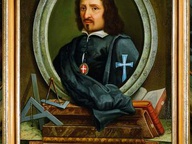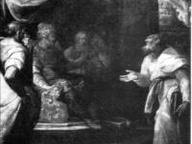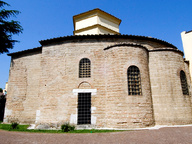Franco Scuderi. Castelli di sabbia
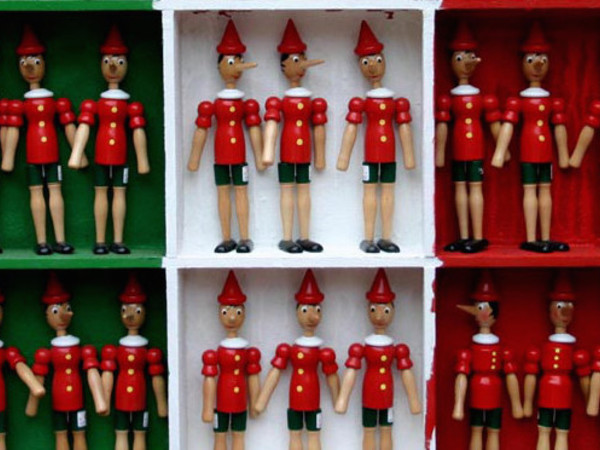
Franco Scuderi. Castelli di sabbia, Officina delle Zattere, Venezia
From 25 Settembre 2014 to 26 Ottobre 2014
Venice
Place: Officina delle Zattere
Address: Fondamenta Nani, Dorsoduro 947
Times: Tuesday to Sunday 11 am - 7 pm
Responsibles: Roberta Semeraro
Ticket price: free entrance
Telefono per informazioni: +39 041 5234348
E-Mail info: info@arteeventi.com
Official site: http://www.officinadellezattere.it/
Franco Scuderi, born in Turin in 1945, is a Florentine artist by way of adoption. His father was an officer in the Italian army and his mother came from a family of skilled artisans from the Veneto region.
After studying at the Academy of Arts in Florence he began to work with metal and it was only later in this career that he would return to woodcarving.
Between the seventies and the eighties he presented himself as an outright socially active intellectual, ready to explore different artistic languages.
He also founded the independent theatre Castelli di sabbia (Castles of Sand) in Florence and ran a cultural centre in a 15th century chapel.
From an initial starting point in the mid sixties with figurative painting, he passed through a period marked by the geometric rigidity of his shapes, to arrive at the plasticity of three-dimensional compositions with the People, which also coincided with his first trip to the United States.
In an article from the 7th February 1983 by the newspaper, Boca Raton News, he is welcomed to Florida like a new talent born from Renaissance Italy, with the heading New babe in cradle of Renaissance.
His art moves between different extremes; the rational thought that controls the execution of his work, his social motivation which establishes the scope and spontaneous impulse that lends it life.
In the nineties, Scuderi modelled and furnished the spaces of the Palm Beach Villa and was given a teaching position for an art books course.
About ten years ago the artist, who travelled the world, bringing his miniature sculptures with him enclosed in boxes, as if they were the cases of a travelling salesman, returned to live in Florence.
Behind the seeming playful aspect of his work, there lies, in fact, a strong commitment to art. Scuderi understands that the collective sense of things cannot be ignored.
His people find their raison d’être only in choral expression when they move in harmony to compose works which are the things of dreams.
Dreams that are denied to men by the multitude of Pinocchios aligned on the political scene, the same inescapable black box on which our destiny is written.
After studying at the Academy of Arts in Florence he began to work with metal and it was only later in this career that he would return to woodcarving.
Between the seventies and the eighties he presented himself as an outright socially active intellectual, ready to explore different artistic languages.
He also founded the independent theatre Castelli di sabbia (Castles of Sand) in Florence and ran a cultural centre in a 15th century chapel.
From an initial starting point in the mid sixties with figurative painting, he passed through a period marked by the geometric rigidity of his shapes, to arrive at the plasticity of three-dimensional compositions with the People, which also coincided with his first trip to the United States.
In an article from the 7th February 1983 by the newspaper, Boca Raton News, he is welcomed to Florida like a new talent born from Renaissance Italy, with the heading New babe in cradle of Renaissance.
His art moves between different extremes; the rational thought that controls the execution of his work, his social motivation which establishes the scope and spontaneous impulse that lends it life.
In the nineties, Scuderi modelled and furnished the spaces of the Palm Beach Villa and was given a teaching position for an art books course.
About ten years ago the artist, who travelled the world, bringing his miniature sculptures with him enclosed in boxes, as if they were the cases of a travelling salesman, returned to live in Florence.
Behind the seeming playful aspect of his work, there lies, in fact, a strong commitment to art. Scuderi understands that the collective sense of things cannot be ignored.
His people find their raison d’être only in choral expression when they move in harmony to compose works which are the things of dreams.
Dreams that are denied to men by the multitude of Pinocchios aligned on the political scene, the same inescapable black box on which our destiny is written.
SCARICA IL COMUNICATO IN PDF
COMMENTI

-
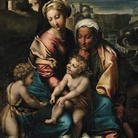 Dal 31 gennaio 2024 al 04 maggio 2025
Fermo | Palazzo dei Priori
Dal 31 gennaio 2024 al 04 maggio 2025
Fermo | Palazzo dei Priori
-
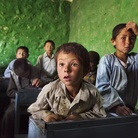 Dal 20 dicembre 2024 al 04 maggio 2025
Fermo | Palazzo dei Priori
Dal 20 dicembre 2024 al 04 maggio 2025
Fermo | Palazzo dei Priori
-
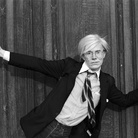 Dal 20 dicembre 2024 al 04 maggio 2024
Gorizia | Palazzo Attems Petzenstein
Dal 20 dicembre 2024 al 04 maggio 2024
Gorizia | Palazzo Attems Petzenstein
-
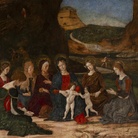 Dal 18 dicembre 2024 al 18 dicembre 2024
Venezia | Museo Correr
Dal 18 dicembre 2024 al 18 dicembre 2024
Venezia | Museo Correr
-
 Dal 14 dicembre 2024 al 02 marzo 2025
Palermo | Palazzo Abatellis
Dal 14 dicembre 2024 al 02 marzo 2025
Palermo | Palazzo Abatellis
-
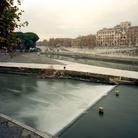 Dal 12 dicembre 2024 al 23 febbraio 2025
Roma | Palazzo Altemps
Dal 12 dicembre 2024 al 23 febbraio 2025
Roma | Palazzo Altemps
